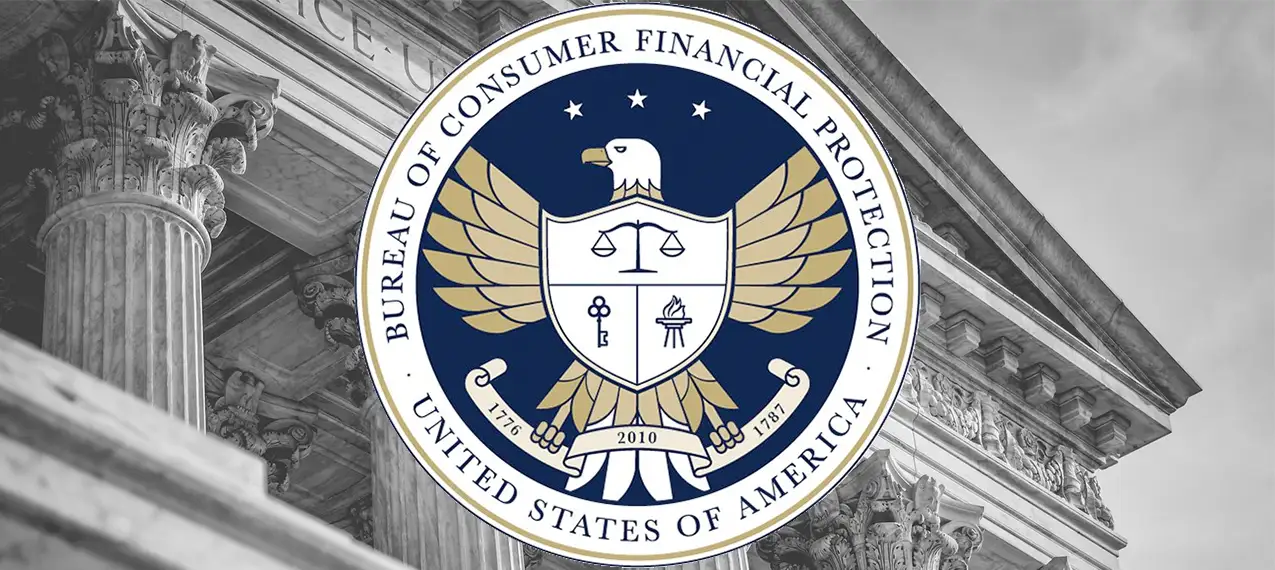
UPDATE: ORAL ARGUMENTS SCHEDULED FOR OCTOBER 3rd
This week, Landmark filed an amicus brief at the US Supreme Court in Consumer Financial Protection Bureau v. Community Financial Services Association of America. Through this case, we hope that the Court will bring to an end one of the most flagrant violations of the separation of powers in our government today.
You can read our full brief here.
The CFPB was created in 2010 by Title X of the Dodd-Frank Act. This Bureau was the brainchild of Elizabeth Warren, then an academic at Harvard University. At its inception, the CFPB was given a variety of powers – some new, some transferred from other agencies – to regulate American consumer finance. In order to “protect” this new agency from having to interact with the representatives of the American people in Congress, Dodd-Frank endowed the CFPB with two unusual safeguards. First, the Director of the CFPB could only be removed by the President for cause. Second, the CFPB would receive its funding indefinitely from the Federal Reserve, outside of the typical process for appropriating funds. As the Supreme Court noted in Seila Law v. CFPB, another seminal case where Landmark filed a brief, “[i]n organizing the CFPB, Congress deviated from the structure of nearly every other independent administrative agency in our history.”[1]
From the beginning, the CFPB has wielded its immense powers with far-reaching effects. The Bureau has gone after small mortgage companies for speaking up about crime in Chicago. It has levied financial penalties in the billions on a single company. Now they are looking to go even further, taking up what they admit to be a “largely unused legal provision” to expand their power over nonbanking businesses.
Unlike other agencies with broad powers, the CFPB was insulated from accountability to Congress or the President. With a steady revenue stream, an untouchable Director, and the delegation of legislative, judicial, and executive powers over wide swaths of the American economy, the CFPB was almost a government unto itself.
This is not the first time the CFPB has been before the Supreme Court. In 2020, the Justices held that the Director’s removal protections violate the separation of powers. Our brief in that case took aim at the unconstitutional arrangement the Director enjoyed, while also raising the issue of the funding scheme. The Court agreed with our stance that the Bureau’s structure went against the ideals of the Framers. At the time, however, they did not rule on the question of the Appropriations Clause violation at play.
The CFPB now finds itself back before the Court, this time on account of its funding scheme, which extends them a blank check to the tune of $750 million a year.
When Congress passed Dodd-Frank, they made it purposefully difficult for any future Congress to pry back this most essential of legislative powers from the CFPB. That is why it is time for the Court to step in.
Not only does the CFPB get hundreds of millions a year, what they do with that money is not “subject to review by Committees on Appropriations” 12 U.S.C. § 5497(a)(2)(C). Furthermore, they are allowed the unique power to retain unused funds and invest them to generate income. By the end of FY 2022, the CFPB had $338 million sitting in Treasury bills.
As Landmark notes in our brief, it is not hard to imagine a future where the CFPB has billions saved and millions in investment income flowing in annually. As legal scholars Mark Chenoweth and Michael DeGrandis have pointed out, “This unprecedented set of delegations and abnegations creates an unchecked, self-sustaining funding island—cut off from the constitutional mainland.” Indeed, in the aftermath of the Supreme Court’s ruling in Seila Law, the CFPB’s funding mechanism allows the President a guaranteed stream of nearly a billion dollars a year without any say from Congress. This arrangement falls into direct contravention of the separation of powers enshrined within the Constitution. As Alexander Hamilton warned, putting together “the sword and the purse . . . would furnish one body with all the means of tyranny.”[2]
The CFPB has been an aberration for its entire existence. In 2020, the Seila Law Court corrected part of the problem. Now, they must finish the job.
As Justice Scalia once wrote:
The troublesome need to [go through the Appropriations process] is not a bug to be fixed by this Court, but a calculated feature of the constitutional framework. As we have recognized, while the Constitution’s government-structuring provisions can seem ‘clumsy’ and ‘inefficient,’ they reflect ‘hard choices . . . consciously made by men who had lived under a form of government that permitted arbitrary governmental acts to go unchecked.’[3]
Landmark calls on the Justices to restore control over the Bureau to the American people through their duly elected Representatives and Senators. The power of the purse is the chief restraint on an Executive Branch “run riot.” While many Congressmen today do not enjoy the scrutiny that comes with making hard decisions for our country, the Constitution is unambiguous in assigning them to do so.
[1] Seila Law, 140 S. Ct. at 2191.
[2] 2 The Debates in the Several State Conventions on the Adoption of the Federal Constitution at 348-49 (J. Elliot 2d ed. 1891) (A. Hamilton)
[3] NLRB v Noel Canning, 573 U.S. 513, 601-602 (2014) (Scalia, J., concurring) (citing Chadha, 462 U.S. 919, 959 (1983)).
SUPPORT LANDMARK LEGAL FOUNDATION
We are truly facing existential threats to our individual rights and liberties, the Constitution, and our national character. If unchallenged, this assault on our very way of life will ruin our great nation. With your financial and moral support, Landmark is not going to let that happen without a fight. Will you join us?
JOIN OUR MAILING LIST
Never miss an update from Landmark Legal Foundation as we continue the fight to preserve America’s principles and defend the Constitution from the radical left.
Landmark will NEVER share your contact information and we will not flood your inbox.





